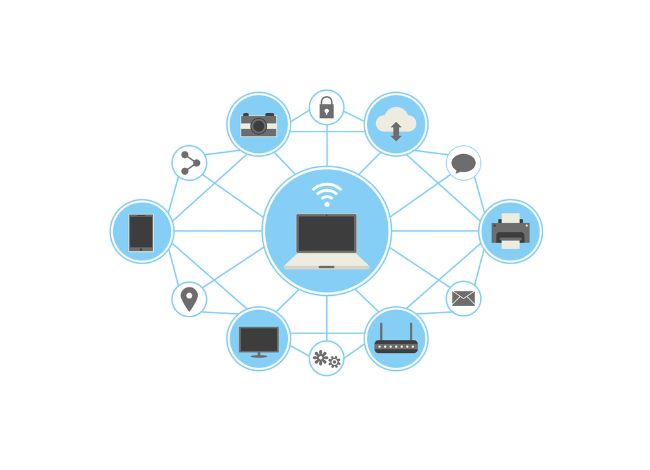What Is Encryption?
Encryption is the process of converting readable data into an unreadable format using algorithms and keys. Only those with the decryption key can access the original information. This helps protect sensitive data from cybercriminals, hackers, or unauthorized users.
Why Is Encryption Important in Cyber Security?
In a world full of cyber threats, encryption is a key tool in safeguarding privacy, maintaining data integrity, and ensuring compliance with regulations like GDPR, HIPAA, and PCI DSS. It plays a critical role in:
- Securing personal data
- Protecting business assets
- Enabling trust in digital communication
Types of Encryption
- Symmetric Encryption
- Uses a single key for both encryption and decryption
- Fast and efficient
- Common Algorithms: AES (Advanced Encryption Standard), DES
- Asymmetric Encryption
- Uses two keys: a public key to encrypt and a private key to decrypt
- More secure for transmitting over the internet
- Common Algorithms: RSA, ECC
- Hashing
- Converts data into a fixed-length hash
- One-way function, cannot be decrypted
- Used in password storage and data integrity checks
Advantages of Encryption
- Data Protection: Keeps sensitive data secure
- Privacy Assurance: Prevents unauthorized access
- Regulatory Compliance: Meets security standards and legal requirements
- Trust: Builds customer confidence in secure systems
Learn How Bornsec Secures Your Cloud and Communication: Explore Bornsec Services
Cyber Security: The Foundation of Digital Protection
Cybersecurity is a layered approach to protect systems, networks, and programs from digital attacks. It includes mobile security in cyber security, networking for cyber security, and technical cyber security strategies. Encryption is integrated into each of these layers to offer robust defenses against breaches.
Email Encryption: Why It Matters
Email encryption is the practice of encoding emails to protect their content. In today’s cyber landscape, secure communication is vital. Using a secure encrypted email service or an email encryption provider can help you avoid data leaks and phishing attempts.
It also helps organizations protect your information, comply with regulations, and maintain user trust.
Secure My Email: Tools That Work
When looking for ways to secure my email, users can choose from numerous tools and platforms. The best privacy apps, data protection apps, and data privacy apps now include built-in encryption protocols to help users stay safe.
Using a military encrypted phone or secure communication devices adds another layer of protection for sensitive conversations.
Data Security Posture Management with Encryption
An effective data security posture management strategy includes a well-implemented key management system. This ensures encrypted data stays secure by allowing only authorized parties access to decryption keys.
The combination of hard disk encryption, encrypted laptops, and data protection application builds a full-fledged encryption infrastructure.
Cloud Security and Encryption
With businesses shifting to the cloud, cloud security system, cloud web security, and cloud security infrastructure have become more important. Cloud encryption ensures your data remains protected even when stored on third-party servers.
Cybersecurity cloud security frameworks should always include on device encryption and advanced data privacy company partnerships.
Cyber Security Tools and Techniques for Encryption
To enhance encryption, organizations can adopt a variety of cyber security tools and techniques. These tools cover areas like:
- File sharing security
- Security on the internet
- Privacy services
The use of cyber security device support can further ensure encrypted transmissions.
Best Decryption Software for Ransomware Defense
While encryption secures data, sometimes it’s used maliciously in ransomware. This is where the best decryption software for ransomware is necessary. Such tools help recover encrypted data and minimize downtime.
Cyber Security Policy Examples Involving Encryption
A strong policy is a must. Explore these cyber security policy examples that integrate encryption standards for better protection. Every example cyber security policy should include:
- Key handling rules
- Data classification
- End-to-end email encryption mandates
Secure Communication Devices and Quantum Security
With the rise of quantum computing, quantum cyber security and quantum security companies are setting new standards in encryption. These systems promise to make communication via secure encrypted email or mail encryption even more impenetrable.
Military Encrypted Phones: High-End Security
Government and defense sectors rely on military encrypted phones. These devices use advanced encryption to keep conversations off the radar from even the most sophisticated cyber threats.
Encryption in Cyber Security Documentation
Businesses are advised to maintain detailed cyber security documentation that outlines their encryption use, including their data protection application, key management system, and security by design principles.
Cyber Security Best Practices PDF and Fundamentals
Use a comprehensive cyber security best practices pdf or a fundamentals of cybersecurity guide to implement encryption effectively. Such documents help reinforce:
- Encryption across endpoints
- Access control measures
- Cloud and mobile security procedures
Guardium Data Protection: Enterprise Encryption
One standout solution in enterprise-grade encryption is Guardium data protection. It helps enforce policies, monitor access, and secure databases.
Such tools are essential to cyber cyber security and cyber security cybersecurity infrastructures.
Security for AI: Encryption in Artificial Intelligence
With AI systems processing sensitive information, implementing security for AI is non-negotiable. Encrypting AI training data and communication channels helps avoid data breaches.
Cyber Security Help and How To Guides
If you’re seeking cyber security help, plenty of cyber security article and “cyber security how to” resources can assist. Topics include:
- How to secure my email
- Best email encryption providers
- Choosing a data privacy company
File Sharing Security with Encryption
Use file sharing security measures like encrypted cloud storage or secure transfer protocols to ensure safe collaboration. Combining this with cloud services security makes remote work more efficient and secure.
Secure Encryption Practices on the Internet
While online, always ensure security on the internet by using:
- VPNs
- Encrypted browsers
- End-to-end encrypted messaging
These tools reduce risk and enhance data protection.
Cyber Security in Detail: Final Thoughts
To conclude, encryption is not just a technical feature; it’s a security strategy. From hard disk encryption to secure encrypted email, every encrypted layer brings you closer to airtight security.
With the growing risks in cybercrime, being proactive by implementing the right cyber security tools and technologies is crucial for individuals and businesses alike.
Explore encryption standards and resources at NIST Cybersecurity Framework




